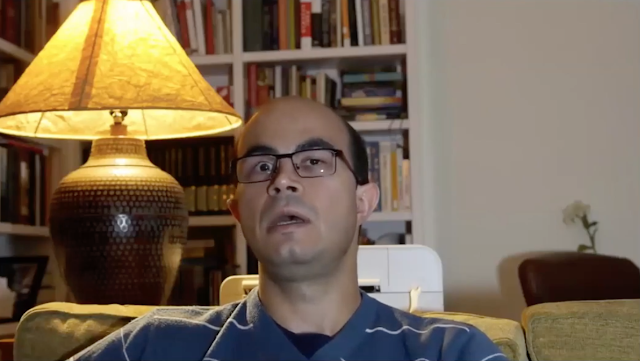Michael SanClements Reflections
Michael SanClements's presentation on the prevalence of plastic and the difficulty of dealing with its environmental impacts was deeply engaging and informative. I was particularly surprised by the way in which SanClements decided to approach the presentation: he gave a lot of historical background on the creation of plastic and its usage to frame his discussion around the lack of utility plastic serves in many cases. He touched on such topics as Tupperware parties and the creation of plastic as a replacement for pool balls to ultimately argue why one-time use plastic has little use in real life. I believe that this event engaged the audience more than any other I've seen through the GIP program: Michael, a Global Scholar, led off the discussion with a question but afterwards, a slew of people had their points to make and questions to ask. One memorable statement that was made by an audience member concerned the viability of single-use plastics. He brought up the fact that single-use plastics may be first and foremost, more economically viable, and that non-plastic alternatives to single-use plastic products (such as plastic cups, straws, etc.) may involve a significant amount of plastic in the manufacturing process. I personally find that the solutions proposed in SanClements's presentation are not as applicable on a larger scale solely because the majority of the population does not have the money to use products that cut down on plastic. One point briefly mentioned by SanClements that I had in mind was the use of plastics based on organic materials, or tough materials that can be used as a plastic replacement but are also composed of substances derived from algae or fungi. That could be something that drives innovation, or on the other hand, we could look more to processing plastic with bacteria or other organisms into substances that are more easily biodegradable. The last solution that I can think of would concern the recycling process itself, which is simply not efficient enough. SanClements cited a figure that stated the highest percentage of plastic being recycled at one time in the United States was about 10%, which is baffling considering how we as a society think of recycling as something that's a much better alternative to simply throwing away plastic products. Overall, I did enjoy the event and appreciate SanClements's efforts to make this complicated issue more accessible from a conceptual standpoint and solutions more actionable for the target audience. He has certainly inspired me to look further into the impacts of plastics on the environment, and doubtless others in the audience.



Comments
Post a Comment